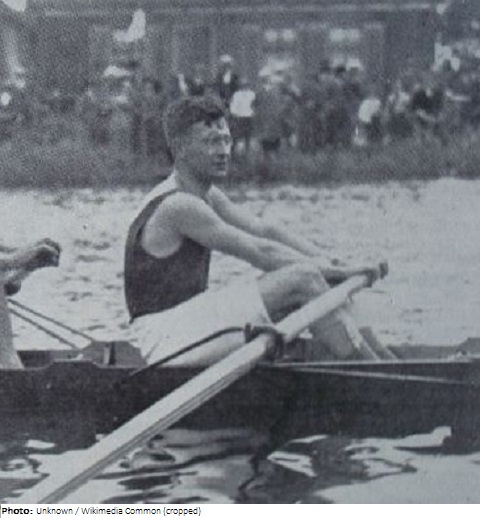Together with Willy Rösingh, Teun Beijnen competed in the coxless pairs at the Paris Olympics. Despite the fact that only three boats had entered, the officials decide to waste everybody’s time by staging both preliminaries and repêchages, even though all boats qualified for the final. The Dutch boat rowed over without opposition, and qualified for the final. Because the British did not show in the final, the Dutch boat only faced the French, eventually winning the race by a length. Rösingh and Beijnen proved their worth a few weeks later, winning the coxed pairs at the European Championships, while placing second in the coxless pairs. Beynen then switched to the eights, winning a second European title in 1926 (after silver a year earlier). In 1923, he had also won a European silver medal in the coxed fours, making Beynen the most successful pre-WWII rower in the Netherlands. After his rowing activities, car fanatic Beijnen competed twice in the Rallye Monte Carlo. He married an opera singer, and owned several companies, including a distillery and a timbermill. During the war, Beijnen was involved in the local resistance movement of his residence Beusichem. A life-long smoker, Beijnen died of heart failure at age 50.

 Netherlands
Netherlands NED
NED NED
NED